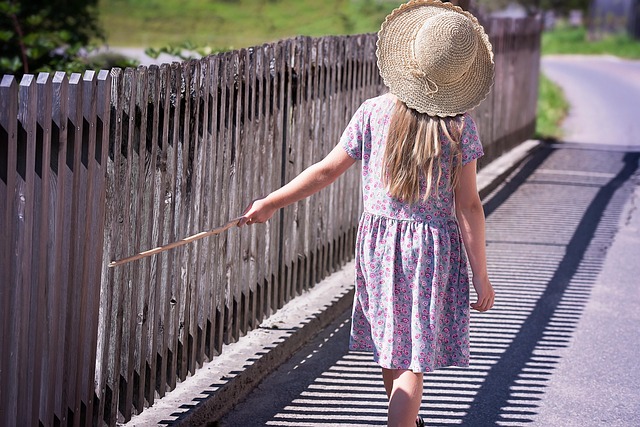New Bedford, MA, is embracing sustainable living with a shift towards eco-friendly fencing materials. This trend not only beautifies properties but also offers numerous environmental and economic benefits. From reducing carbon footprints to fostering local ecosystems, these green fencing solutions are transforming backyards into havens of harmony with nature. This article explores the diverse eco-options available, their advantages, and how choosing sustainable fencing contributes to a greener New Bedford.
- Exploring Eco-Friendly Fencing Options in New Bedford
- Benefits of Sustainable Fencing Materials for Your Property
- Traditional vs. Eco-Conscious Fence Choices
- Low-Maintenance Green Fencing Solutions
- Enhancing Landscaping with Eco-Friendly Fences
- Supporting Local Businesses: New Bedford's Green Fencing Scene
Exploring Eco-Friendly Fencing Options in New Bedford
In New Bedford, MA, exploring eco-friendly fencing options has become increasingly popular as residents and businesses seek sustainable alternatives to traditional materials. The city’s commitment to environmental preservation and green initiatives makes it an ideal testing ground for innovative fencing solutions that minimize ecological impact without compromising durability or aesthetics.
One prominent trend is the use of recycled plastic and wood composites, which offer both versatility and environmental benefits. These materials are made from post-consumer waste, reducing the demand for new resources and diverting materials from landfills. Additionally, they are highly durable, requiring little maintenance, and can be customized to match various design preferences, ensuring that eco-conscious fencing enhances rather than detracts from the natural beauty of New Bedford’s landscape.
Benefits of Sustainable Fencing Materials for Your Property
Incorporating eco-friendly fencing materials into your New Bedford, MA property offers numerous advantages, both aesthetically and environmentally. These sustainable options provide an excellent alternative to traditional fencing, allowing homeowners to reduce their carbon footprint while enhancing their outdoor spaces. One of the key benefits is their durability; made from recycled or natural materials, these fences are built to withstand various weather conditions, ensuring longevity without compromising aesthetics.
Moreover, eco-friendly fencing contributes to a healthier local ecosystem. By choosing materials like bamboo, recycled plastic, or wood from sustainable sources, you support environmentally conscious practices and reduce the demand for non-renewable resources. Such fences also provide insulation, helping regulate temperature in your yard, and can even attract wildlife, creating a more diverse and thriving garden ecosystem.
Traditional vs. Eco-Conscious Fence Choices
In New Bedford, MA, as awareness of environmental impact grows, so does the demand for eco-conscious fence choices. Traditional fencing materials like wood and metal often involve harmful production processes and can contribute to deforestation and pollution. These materials may also require frequent maintenance, leading to more waste and additional environmental strain.
Eco-friendly fencing alternatives, on the other hand, offer a sustainable solution. Options such as recycled plastic, bamboo, and vegetable-tanned leather are not only environmentally beneficial but also aesthetically pleasing. They require less upkeep, reduce carbon footprint, and can even contribute to local ecosystems by using renewable resources. By choosing eco-conscious fences, New Bedford residents can enhance their outdoor spaces while promoting a greener future.
Low-Maintenance Green Fencing Solutions
In the quest for sustainable living, New Bedford residents now have access to low-maintenance green fencing solutions. These eco-friendly materials offer a fresh approach to traditional fencing, combining aesthetics with environmental consciousness. Unlike conventional fences that may require regular cleaning and maintenance, green fencing options are designed to thrive with minimal care.
One such material is vertical gardening or living fences, which incorporate plants directly into the fence structure. This innovative method not only provides privacy but also contributes to biodiversity by attracting local wildlife. Additionally, these living fences are highly adaptable to various climates and soil conditions, making them a versatile choice for New Bedford’s diverse landscapes.
Enhancing Landscaping with Eco-Friendly Fences
Eco-friendly fences are not just functional; they can significantly enhance landscaping in New Bedford, MA. With their natural aesthetics, these fences blend harmoniously with the surrounding environment, creating a beautiful contrast between man-made structures and organic landscapes. Materials like bamboo, recycled plastic, and wood from sustainable sources offer visually appealing options that stand out for their uniqueness while still maintaining an eco-conscious approach.
Moreover, these types of fences contribute to overall environmental health by reducing maintenance requirements and minimizing the use of harmful chemicals. They help preserve local ecosystems by using renewable resources and promoting biodiversity. In New Bedford’s vibrant urban and suburban settings, eco-friendly fences can transform outdoor spaces into serene oases that not only elevate property values but also foster a deeper connection with nature.
Supporting Local Businesses: New Bedford's Green Fencing Scene
New Bedford, MA, is witnessing a green revolution when it comes to fencing materials, with an increasing trend towards eco-friendly options. This shift not only benefits the environment but also supports local businesses that specialize in sustainable practices. The city’s small but thriving network of green entrepreneurs and manufacturers is at the forefront of this movement, offering innovative solutions for homeowners and businesses alike.
By choosing locally sourced, eco-friendly fencing materials, New Bedford residents contribute to a circular economy, reducing transportation emissions and supporting nearby businesses. These local enterprises often utilize recycled or renewable resources, such as bamboo, reclaimed wood, and natural fibers, to create durable and aesthetically pleasing fences. This approach aligns with the city’s commitment to sustainability and offers a unique opportunity to enhance outdoor spaces while promoting a healthier planet.
